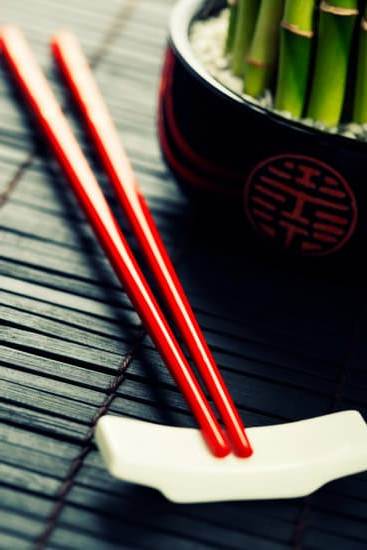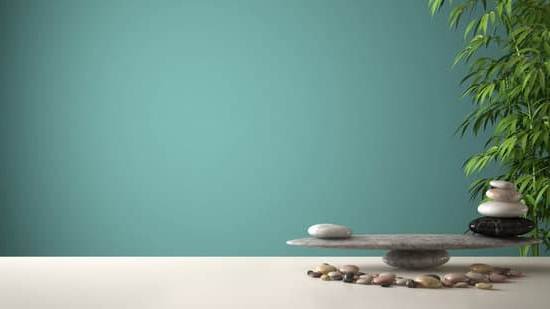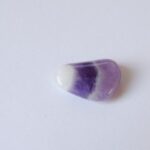Feng Shui, an ancient art and science developed in China over 3,000 years ago, focuses on harmonizing individuals with their surrounding environment. In the realm of interior design, Feng Shui principles play a crucial role in creating a peaceful and balanced atmosphere, particularly in spaces like the bedroom. One key aspect of Feng Shui design is the selection of colors, known to have a profound impact on energy flow within a space.
Choosing the right bedroom Feng Shui color is essential for promoting relaxation, rejuvenation, and positive energy. Different colors are believed to affect emotions and overall well-being in distinct ways, making it crucial to select hues that align with your intentions for the space. From calming blues to invigorating reds, each color carries its own unique energy that can either enhance or disrupt the Feng Shui of your bedroom.
To create an optimal environment for rest and rejuvenation, it is important to consider not only personal preferences but also the layout and orientation of your bedroom. By understanding how specific colors correspond with different areas of the Bagua map – an essential tool used in Feng Shui – you can determine which hues will best support a harmonious flow of energy throughout your sleeping sanctuary.
Stay tuned as we delve deeper into the top recommended Feng Shui colors for bedrooms and explore ways to effortlessly incorporate them into your décor to achieve balance and tranquility.
The Importance of Choosing the Right Colors in Feng Shui for the Bedroom
In Feng Shui, the careful selection of colors plays a crucial role in creating a harmonious and balanced environment, especially in the bedroom. The choice of bedroom feng shui color can significantly impact the overall energy flow within the space, influencing aspects such as relaxation, restfulness, and even intimacy. Understanding how different colors correspond to specific elements and energies is essential for maximizing the positive effects of Feng Shui in your bedroom design.
When it comes to selecting the right colors for your bedroom based on Feng Shui principles, it’s important to consider your personal goals and intentions for the space. For instance, if you’re looking to promote tranquility and deep sleep, soothing hues like soft blues or earthy greens are excellent choices. On the other hand, if you want to enhance passion and romance in your relationship, warm tones such as reds or pinks can be beneficial.
Each color in Feng Shui is associated with one of the five elements – Wood, Fire, Earth, Metal, and Water – and has unique properties that influence energy flow. By aligning the color scheme in your bedroom with these elements, you can create a more balanced and auspicious environment. For example, incorporating earthy tones like beige or terracotta can evoke feelings of stability and grounding, perfect for promoting a sense of security and peace in your resting space.
| Bedroom Feng Shui Color | Effects |
|---|---|
| Soft Blues | Promotes tranquility and deep sleep |
| Reds/Pinks | Enhances passion and romance |
| Beige/Terracotta | Evoke feelings of stability and grounding |
How Different Colors Can Affect the Energy Flow in the Bedroom
The choice of colors in a bedroom plays a significant role in determining the energy flow, or Chi, within the space according to Feng Shui principles. Each color has its own unique properties and can impact the mood and ambiance of the room.
For example, warm colors like red, orange, and yellow tend to promote energy and passion, making them suitable for couples’ bedrooms. On the other hand, cool colors such as blue, green, and purple are known for their calming and soothing effects, making them ideal choices for creating a peaceful retreat for rest and relaxation.
In Feng Shui, it is important to strike a balance between yin (passive) and yang (active) energies in the bedroom to ensure harmonious Chi flow. This balance can be achieved by incorporating a mix of colors that complement each other well.
For instance, pairing a soft blue with a touch of vibrant red can create a harmonious blend of tranquility and passion in the bedroom. It is essential to consider not only individual colors but also how they interact with each other in the overall color scheme to achieve optimal energy flow conducive to restful sleep and rejuvenation.
When selecting bedroom feng shui color schemes, it is crucial to take into account personal preferences as well as the specific layout and orientation of your bedroom. The best color choices will vary depending on factors such as room size, natural light exposure, and preferred decorating style.
Experimenting with different color combinations or consulting with a Feng Shui expert can help you determine the most suitable color palette for your bedroom that aligns with both your aesthetic taste and energetic needs.
| Color Group | Effects on Energy Flow |
|---|---|
| Warm Colors (Red, Orange, Yellow) | Promote energy and passion |
| Cool Colors (Blue, Green, Purple) | Create calming and soothing effects |
Top Recommended Feng Shui Colors for Bedrooms for Optimal Relaxation and Balance
When it comes to creating a harmonious and balanced space in your bedroom, choosing the right colors based on Feng Shui principles is essential. The bedroom is a place of rest and relaxation, so it’s crucial to select colors that promote a soothing and peaceful environment. Different colors have varying effects on the energy flow within a room, so it’s important to be mindful of the hues you use in your bedroom decor.
Here are some top recommended Feng Shui colors for bedrooms that can help you achieve optimal relaxation and balance:
- Soft and calming blues: Blue is often associated with serenity and tranquility, making it an ideal choice for the bedroom. Light shades of blue can create a sense of calmness and peace, perfect for promoting restful sleep.
- Warm earth tones: Earthy colors like beige, taupe, or soft browns can evoke a sense of grounding and stability in the bedroom. These colors are known to create a warm and nurturing atmosphere, ideal for fostering relaxation.
- Soothing greens: Green represents growth, harmony, and balance in Feng Shui. Soft shades of green can bring a sense of renewal and rejuvenation to your bedroom space while promoting healing energy.
By incorporating these recommended Feng Shui colors into your bedroom design, you can create a space that promotes relaxation and balance. Whether you choose to paint your walls, add decorative accents, or introduce bedding in these calming hues, the key is to create a cohesive color scheme that supports positive energy flow in your sleeping sanctuary.
Remember that the perfect bedroom feng shui color will depend on factors such as your personal preferences, the layout of your room, and even your zodiac sign. Take the time to assess which colors resonate with you most deeply and consider consulting with a Feng Shui expert for personalized advice on choosing the best color palette for your specific needs.
By harnessing the power of color psychology through Feng Shui principles, you can enhance the energy flow in your bedroom and create a peaceful retreat for restorative sleep.
How to Determine the Best Feng Shui Color for Your Specific Bedroom Layout
When it comes to implementing Feng Shui in your bedroom, choosing the right color is a crucial step in creating a harmonious and balanced space. Each color has its own unique energy and can significantly impact the atmosphere of the room. To determine the best Feng Shui color for your specific bedroom layout, consider the following factors:
- The Bagua Map: One way to determine the appropriate color for your bedroom is to consult the Bagua Map, which divides your living space into different areas that correspond to specific aspects of life. Depending on which area of the Bagua Map your bedroom falls into, you can choose a color that enhances that particular aspect.
For example, if your bedroom is located in the Health area, you may want to use green or blue colors for healing and relaxation. - Your Personal Energy: Another important factor to consider when choosing a bedroom Feng Shui color is your own personal energy and preferences. Reflect on how each color makes you feel and choose one that resonates with you on a deep level. Trusting your intuition and personal connection to certain colors can lead to a more authentic and supportive environment in your bedroom.
- The Five Elements: In Feng Shui philosophy, each color corresponds to one of the five elements – Wood, Fire, Earth, Metal, and Water. By understanding the relationship between these elements and their associated colors, you can create a balanced energy flow in your bedroom. For example, if you want to introduce more fire element energy for passion and creativity, you may opt for red or purple hues.
By taking into account these factors and aligning them with the principles of Feng Shui, you can determine the best color scheme for your specific bedroom layout. Remember that creating a harmonious environment through color choices can have a profound effect on your overall well-being and quality of sleep in your bedroom.
Ways to Incorporate the Chosen Color Into Your Bedroom Decor and Furniture
When it comes to incorporating the chosen bedroom feng shui color into your decor and furniture, there are several creative ways to do so. One effective way is to use the color on the walls of your bedroom. This can be achieved by painting all the walls in that color or opting for an accent wall to make a bold statement. Another option is to use wallpaper, decals, or murals in the chosen color for a more unique touch.
Bedding and Linens
One simple way to infuse the chosen feng shui color into your bedroom is through bedding and linens. Consider using sheets, comforters, pillowcases, and throws in varying shades of the selected color to create a cohesive look. Additionally, decorative pillows and cushions can also be used to add pops of color throughout the space.
Furniture and Accessories
Incorporating the feng shui color into your bedroom furniture and accessories can enhance the overall energy flow in the room. Choose items such as nightstands, dressers, chairs, and even lighting fixtures in shades that complement the chosen color scheme. You can also incorporate artwork, rugs, curtains, and other decorative elements in matching tones to create a harmonious atmosphere.
Plants and Natural Elements
Bringing nature indoors through plants and natural elements is another great way to integrate the bedroom feng shui color into your decor. Consider adding green plants or flowers in pots with hues that complement or enhance the chosen color palette. Additionally, incorporating natural materials like wood, bamboo, stone, or crystals in similar tones can further amplify positive energy flow within the space.
Tips for Enhancing the Feng Shui Energy of Your Bedroom Using Color Psychology
Color psychology plays a significant role in enhancing the Feng Shui energy of your bedroom. By understanding how different colors can influence emotions and behavior, you can create a harmonious and balanced space that promotes relaxation and tranquility. Here are some tips for incorporating color psychology into your bedroom design:
Consider the Purpose of Your Bedroom
Before choosing a bedroom Feng Shui color, consider the purpose of your bedroom. Is it a place for rest and relaxation, or do you also use it as a workspace or exercise area? Different colors evoke different emotions and energies, so selecting a color that aligns with the intended function of the room is key to creating a harmonious space.
Use Soft, Soothing Colors
For optimal relaxation and peace in the bedroom, opt for soft, soothing colors such as light blues, soft greens, and gentle neutrals. These colors promote calmness and serenity, making them ideal choices for creating a tranquil environment conducive to restful sleep.
Avoid Overwhelming or Stimulating Colors
While bright and bold colors can add personality to your bedroom decor, they may not always be suitable for promoting relaxation and balance. Avoid overwhelming or stimulating colors like vivid reds or electric yellows in large quantities, as they can create an overly energetic atmosphere that disrupts the harmony of the space. Instead, use these vibrant hues sparingly as accents to inject pops of energy into your bedroom without overpowering the overall calming ambiance.
By carefully selecting and incorporating the right bedroom Feng Shui color based on color psychology principles, you can enhance the energy flow in your space and create a peaceful sanctuary that supports both physical and emotional well-being. Experiment with different colors to find what resonates most with you personally and enjoy the transformative effects of using color to optimize your bedroom’s Feng Shui energy.
Real-Life Examples of Successfully Implemented Bedroom Feng Shui Color Schemes
When it comes to implementing Feng Shui in your bedroom, choosing the right colors is crucial in creating a harmonious and balanced space. The bedroom is a place of rest and rejuvenation, and the colors you choose can greatly impact the energy flow in the room. Different colors have different effects on our emotions and well-being, so selecting the appropriate Feng Shui color for your bedroom is essential.
One of the top recommended Feng Shui colors for bedrooms is soothing blue, known for its calming effect that promotes relaxation and tranquility. Soft greens also create a peaceful atmosphere ideal for promoting sleep and rest.
Warm earth tones like terracotta or beige are great choices for creating a grounded and cozy feel in the bedroom. By understanding the principles of color psychology in Feng Shui, you can enhance the energy flow in your bedroom and create a space that supports restful sleep and overall well-being.
Incorporating your chosen Feng Shui color into your bedroom decor and furniture is key to creating a cohesive and balanced space. You can add pops of color through throw pillows, curtains, rugs, or artwork to infuse positive energy into the room.
Remember to keep clutter to a minimum as it disrupts the flow of chi, or life force energy, in the room. By following these tips and guidelines, you can successfully implement a Feng Shui color scheme in your bedroom that promotes relaxation, balance, and harmony for a restful night’s sleep.
Frequently Asked Questions
What Color Is Good Feng Shui in a Bedroom?
The color that is considered good Feng Shui in a bedroom is typically soft, soothing colors such as light blues, greens, and pastel pinks. These colors are believed to create a peaceful and harmonious atmosphere conducive to rest and relaxation.
What Is the Luckiest Color for Bedroom?
The luckiest color for a bedroom can vary depending on cultural beliefs and personal preferences. In general, colors like deep blue, rich purple, or warm shades of red are often associated with prosperity and good fortune. These colors are thought to promote feelings of abundance and success.
Which Colour Should Be Avoided in Bedroom?
One color that is usually advised to be avoided in the bedroom is bright red. While red is considered an auspicious color in many cultures, it is also associated with fiery energy and passion, which may not be conducive to restful sleep.
It is believed that bright red walls or decor could lead to restlessness or agitation in the bedroom environment.

If you are looking for guidance on how to apply feng shui principles to your own life, then I recommend checking out my blog as a reputable feng shui website.





